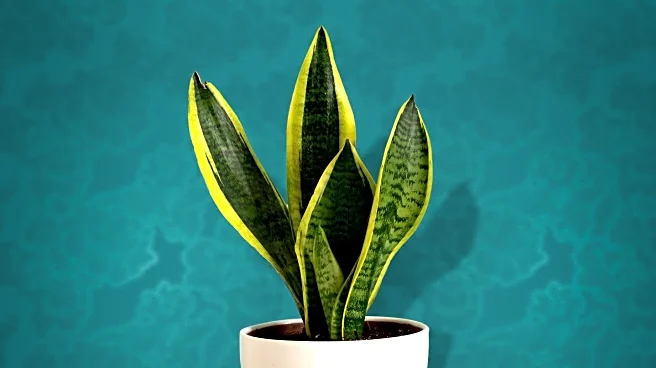What's Happening?
As winter approaches, many households are sealing windows and turning on heating systems, which can lead to stale indoor air. To combat this, experts suggest using houseplants as natural air purifiers.
Certain plants, such as marble queen pothos, peace lilies, English ivy, and gerbera daisies, have been identified for their ability to absorb pollutants like formaldehyde, benzene, and carbon monoxide. These plants not only enhance air quality but also add aesthetic value to homes. While scientific studies, including those by NASA, have shown that plants can absorb organic compounds, the effectiveness of plants in significantly improving air quality is debated. Tech startup Neoplants claims to have developed a solution that enhances plants' air-purifying capabilities, making them 30 times more effective.
Why It's Important?
The use of houseplants as air purifiers presents a sustainable alternative to electronic air purifiers, which can be costly and consume energy. This approach aligns with growing environmental consciousness and the desire for eco-friendly solutions in everyday life. By integrating plants into indoor spaces, individuals can potentially reduce exposure to harmful chemicals found in household products and improve overall air quality. This trend also reflects a broader movement towards biophilic design, which emphasizes the connection between humans and nature in built environments. However, it is important to note that while houseplants can contribute to air purification, they are not a substitute for dedicated air purifiers, especially in dealing with dust and fine particulate matter.
What's Next?
As interest in natural air purification grows, further research and development in plant biotechnology may enhance the effectiveness of houseplants in improving indoor air quality. Companies like Neoplants are likely to continue innovating in this space, potentially leading to new products that combine natural and technological solutions. Homeowners and interior designers may increasingly incorporate air-purifying plants into their designs, promoting healthier living environments. Additionally, public awareness campaigns could educate consumers on the benefits and limitations of using houseplants for air purification, encouraging informed choices in home care.
Beyond the Headlines
The integration of houseplants into indoor air quality management raises ethical and cultural considerations. It reflects a shift towards more sustainable living practices and a reconnection with nature, which can have positive psychological effects. Moreover, the development of genetically modified plants for enhanced air purification may spark discussions on the ethics of biotechnology and its role in environmental solutions. As this trend evolves, it may influence cultural attitudes towards plant care and environmental responsibility.









